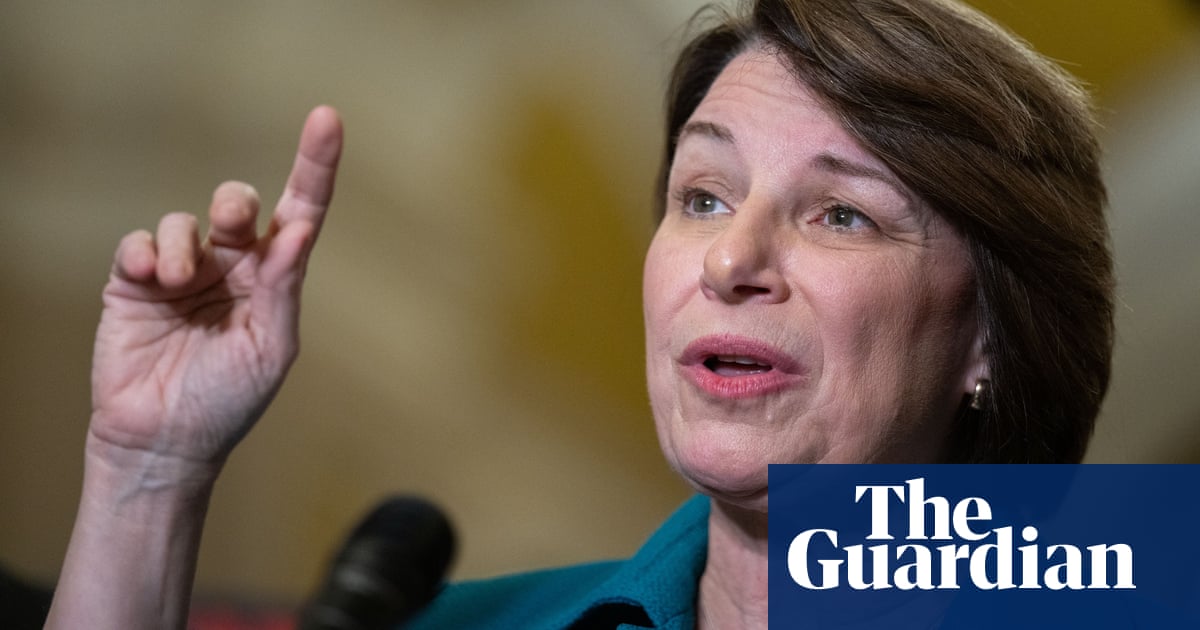Photo credit: www.theguardian.com
Concerns Over a Constitutional Crisis and Supreme Court Decisions
Minnesota Senator Amy Klobuchar expressed deep concerns on Sunday regarding the state of American democracy, stating that the nation is “getting closer and closer to a constitutional crisis.” However, she noted that the judicial system, mounting Republican unease with various policies from the Trump administration, and public protests are currently preventing such a crisis.
During an appearance on CNN’s State of the Union, Klobuchar asserted, “As long as these courts hold, and the constituents hold, and Congress begins to stand up, our democracy will endure.” She further criticized former President Donald Trump’s actions, suggesting he is attempting to lead the country into turmoil.
The Senator specifically called on the U.S. Supreme Court to hold officials from the Trump administration in contempt if they continue to disregard a court order regarding Kilmar Ábrego García. García, a Maryland resident, was inadvertently deported to El Salvador, a fact the government acknowledged in court.
Klobuchar proposed that the court might appoint a special prosecutor, free from the Trump administration’s influence, to ensure accountability for those involved in García’s deportation and anyone obstructing his return to the United States.
Her comments arose shortly after Justice Samuel Alito released a dissenting opinion on the Supreme Court’s decision to prevent the Trump administration from deporting additional Venezuelans detained at Bluebonnet detention center in Texas.
In his dissent, Alito argued that the majority’s decision lacked sufficient justification and was made without a proper review process. He criticized the “unprecedented” relief granted by the majority, labeling the court’s actions as “hasty and premature.”
Justice Alito, joined by fellow conservative Justice Clarence Thomas, emphasized concerns regarding the factual basis for the emergency appeal from the American Civil Liberties Union, which sought to block the deportation of individuals tied to gang activities—a move the administration argues is supported by the Alien Enemies Act of 1798.
The majority of the Supreme Court did not elaborate on their reasoning in the order issued early Saturday morning; they simply mandated that the administration refrain from deporting Venezuelans until further notice.
Previously, the Supreme Court had indicated that deportations under the 1798 law must only occur if affected individuals are given an opportunity to argue their cases and have reasonable time to challenge their deportation orders in court.
Alito stated that both the Executive and Judicial branches are obligated to adhere to the law, questioning whether the Supreme Court had jurisdiction until proper legal processes were exhausted at lower court levels. He expressed concern that the justices had not been afforded a chance to hear the government’s arguments.
“The only documents presented to this Court were those from the applicants,” he remarked. “The Court had neither ordered nor received a response from the Government concerning the applicants’ claims or any legal matters raised.”
In his dissenting view, Alito noted that the applicants didn’t demonstrate an imminent risk of removal, stating, “In sum, literally in the middle of the night, the Court issued unprecedented and legally questionable relief without giving the lower courts a chance to rule or hearing from the opposing side.”
He concluded by questioning the necessity and propriety of issuing such an order at midnight, reinforcing the notion that the Court’s actions lacked a sound basis under the existing circumstances.
Source
www.theguardian.com

